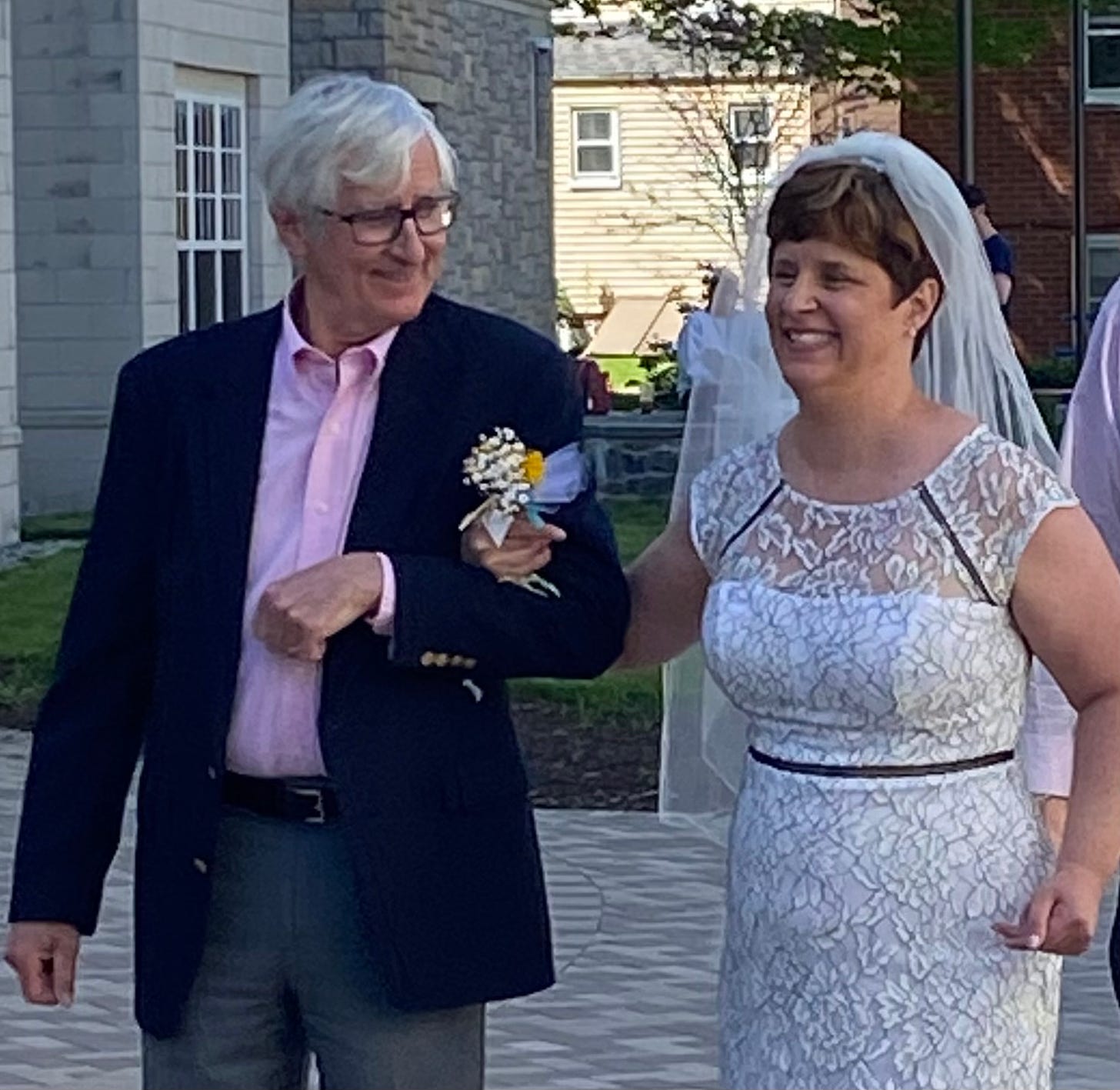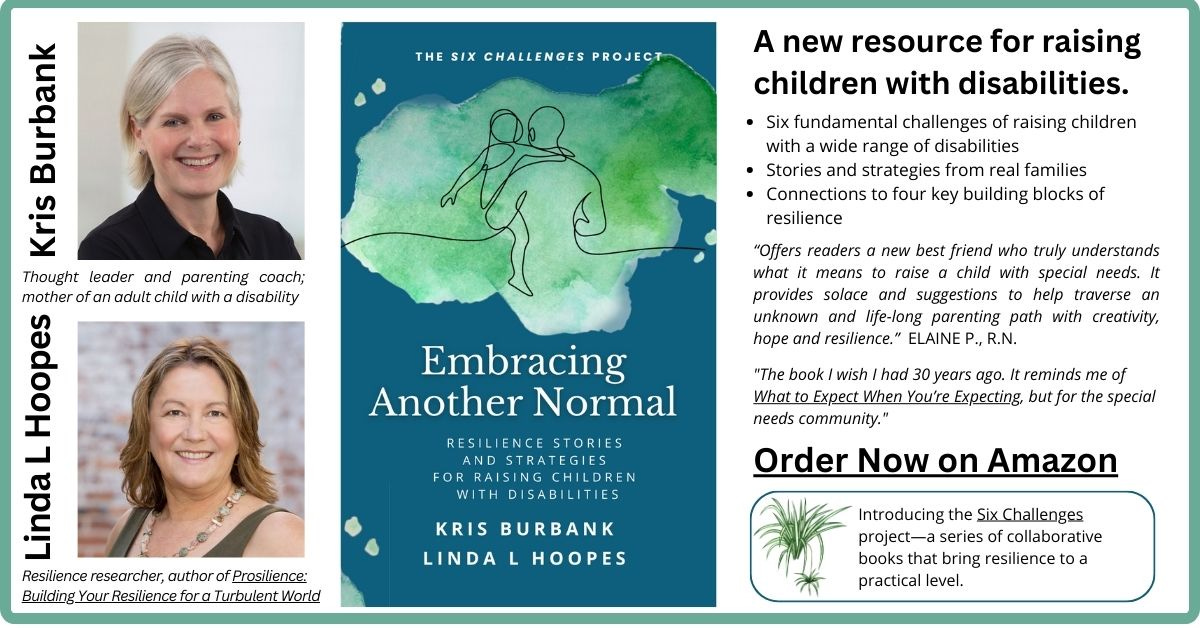With This Ring

In recent weeks, several readers have asked me to address the issue of marriage for people with disabilities. This topic has been in the news lately for many reasons, not the least of which is that there are marriage penalties “baked into” important government benefit programs that many people with disabilities rely upon to help cover the extremely high cost of daily life.
Like most government benefit programs, this issue is complex and confusing. But the bottom line is that millions of people in the U.S. face unfair reduction or forfeiture of benefits as a result of marrying. And this needs to change.
Here’s more good info on the topic, including a bill introduced in Congress to update these unjust and outdated rules. If you have time to listen, here’s an excellent podcast that details the issue in plain language and breaks down what we can do to work for change.
In addition to spotlighting the U.S. laws and limitations of marriage for people with disabilities, today’s newsletter also provides reflections on a relationship that is near and dear to me between our son’s friends, Sam and Kara. I’m grateful to them and Sam’s mother for sharing their perspective. I expect you will be, too.
Dating, relationships, and marriage can become emotional and stressful topics for parents of adult children who yearn to enjoy this aspect of independence and adulthood. Although I can’t dive deeply into them here, I hope today’s issue provides some hope and direction to readers who are thinking about this and concerned about the challenges.
As always, thanks for being here.
Love is love is love is love is love is love is love…
—Lin-Manuel Miranda
Wedding bells chime.
On a sunny Saturday last spring, a beautiful community of adults with disabilities gathered in New Haven, Connecticut, to celebrate a very special wedding between two very special people. The bride and groom, Kara and Sam, are my son’s friends and neighbors in the intentional community of Chapel Haven Schleifer Center. Their love story is instructive, inspiring, and definitely worth sharing.

According to Sam’s mother, Pam, her son was always able to manage relationships, and they are very important to him. When he lived at home with his parents, says Pam, he explored physical and emotional relationships with women, and experienced both success and challenge. “Despite his disabilities, Sam could navigate the subway on his own, go out to the movies with dates, and enjoy dinner at a restaurant,” says Pam. “He always had friends who were girls, and he knew who he was attracted to.” But sometimes he didn’t pick the best people to pursue, she recalls.
After moving to Chapel Haven and learning to live on his own, Sam met Kara. She didn’t like the way his then-girlfriend treated him, and she told him so. Interestingly, Sam listened. Upon reflection, his mom is impressed by how Sam connected with Kara – right from the start. “It was obvious they wanted their relationship to develop further,” she recalls. “Despite our fears, we had to learn to trust and let go, which wasn’t always easy.”
Contraception and family planning were a big concern for them, but thankfully Sam’s parents had always been open and honest with him about the complexities of romantic relationships. They had naturally conversed about sexual desire and the consequences of unprotected sex. Sam decided he doesn’t want children and talked extensively with his parents and a therapist to fully understand the ramifications of this decision.
It’s important to note here that Sam’s conversations with the therapist were independent of his parents, which reflects how much they respect his dignity and self-direction, I think. He ultimately decided to undergo a vasectomy and made Kara aware of this once their relationship became more serious. Then they started planning their life together.
“We wanted to help protect them,” Pam remembers,” but we also respected them enough to let them live their lives.” She worried about what would happen if the relationship didn’t last. But she recalls “stepping aside” and allowing her son and his girlfriend to make mistakes and learn. “That’s what we would have done if he didn’t have disabilities,” she says. “ You’ve got to give them opportunities to prove what they can do.”

Working with Chapel Haven staff, Sam and Kara arranged to become roommates and learned how to manage the challenges of living together. After several years, they decided to go a step further and tie the knot. And the rest, as they say, is history.
When I asked Pam how she could trust the couple to make good decisions and successfully navigate a lifelong relationship, she is adamant about the role that community support plays for Sam and Kara. “They are surrounded by great role models, by friends and family who are there to help and guide and celebrate with. Because of Sam’s cognitive disabilities, it’s vital that he’s around people who can help him problem solve and manage relationship issues.” Living where they do, with support from the entire community (both staff and residents), means Kara and Sam are not alone on their journey. His parents are still very involved and supportive of his life, but so are his friends, support staff, and now his wife. “Sam’s our kid and he’s got disabilities,” says Pam. “But he also wants a life, and we all want that for him.” So the support for him and Kara just grows.
According to Sam, “Being married is great because Kara is my best friend and she makes me really happy.” Kara is equally gleeful, saying that “Sam is respectful and fun, and he does nice things for me. I love being his wife.” Like many couples, Sam and Kara work through marital challenges with support from friends and family. It may not always be easy, but as Pam is quick to remind us, “Just because something is harder doesn’t mean it’s not possible or worth striving for.”
Additional resources.
-
Here is live, online sexuality training for parents of adults with intellectual and developmental disabilities (I/DD) and professionals who work with them.
-
This book is a resource for adults who are in a relationship or looking to find one.
-
This outlines proposed changes to current laws and penalties for people with disabilities who wish to marry.
-
Check out disability activist and author Alice Wong’s new book here. Kirkus Reviews calls Disability Intimacy: Essays on Love, Care & Desire “a poignant anthology about ability and intimacy that espouses a gorgeously original worldview.”
Speaking of books.
It’s hard to sufficiently express my overwhelming gratitude for the outpouring of support I’ve received for my new book, Embracing Another Normal, available now on Amazon in both print and Kindle versions. In just one week since launching, we’ve been inundated with glowing praise and encouragement. I’m so glad readers are finding the book to be a valuable resource, and I can’t wait to share more news on our plans for 2024 with you soon.
Meanwhile, it would mean the world to me if you could submit a quick review on Amazon to help guide and inspire other readers.
You can also contact me here anytime with more detailed thoughts on the book or this newsletter. Your feedback matters and I love hearing from you.

Interested in learning more about working with Kris?
Contact us for information on what this might look like for you, including outcomes, availability, fees and more.
Stay connected with news and updates!
Sign up below to receive our newsletter and updates.
We hate SPAM. We will never sell your information, for any reason.


